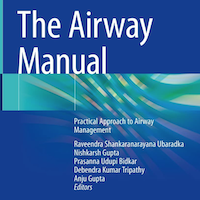
Accuracy of Ultrasound Exam Performed by EM vs. Radiology Residents in the Diagnosis of Acute Appendicitis
Although the traditional approach to the diagnosis of acute appendicitis (AA) is using clinical methods, experience has shown that strict reliance on clinical data can lead to mismanagement or unnecessary surgery. US has... read more

Danger Signals in the ICU
Damage-associated molecular pattern activation and release is an important research for intensive care practitioners. It will add to our understanding of the phase and state of the innate immune response to an insult. Early... read more

Cardiac Output Monitoring: Throw it Out… or Keep it?
In critical care units, the shelf for cardiac output (CO) monitoring devices fills up with ever more innovative systems. Are these techniques useful, or are they expensive and irrelevant gadgets? There are arguments to defend... read more

An Exploratory Reanalysis of the Randomized Trial on Efficacy of Corticosteroids as Rescue Therapy for the Late Phase of ARDS
During active intervention, methylprednisolone was safe and effective in achieving disease resolution. Our findings support rapid glucocorticoid discontinuation post extubation as likely cause of disease relapse. Gradual... read more

Diagnostic Accuracy of Delirium Assessment Methods in Critical Care Patients
Delirium is a disorder of decreased ability to focus, sustain or shift attention, change in cognition and or perception. The main objective was to evaluate the diagnostic accuracy of Confusion Assessment Method for the ICU... read more

Concise Review of Critical Care, Trauma and Emergency Medicine
A Quick Reference Guide of ICU and Er Topics. Most commonly encountered clinical scenarios and relevant topics are summarized in an easy to understand format. Can be used as quick reference guide during rounds, or during... read more

Prone Positioning of ARDS Patients
A prospective international observational prevalence study on prone positioning of ARDS patients: the APRONET (ARDS Prone Position Network) study. While prone positioning (PP) has been shown to improve patient survival in... read more

On Diagnosing Sepsis
Two years ago, a panel appointed by the Society of Critical Care Medicine and the European Society of Intensive Care Medicine, referred to as a consensus conference, proposed a new definition for sepsis and new diagnostic... read more

Animal-assisted Intervention in the ICU: A Tool for Humanization
The combination of an aging population and advances in critical care medicine is resulting in a growing number of survivors of critical illness. Survivors' descriptions of their stay in an intensive care unit (ICU) are frequently... read more

Trends of Incidence and Risk Factors of VAP in Elderly Patients Admitted to French ICUs
This study assesses trends and risk factors of ventilator-associated pneumonia (VAP) according to age, particularly in the elderly admitted to French ICUs between 2007 and 2014. Ventilator-associated pneumonia incidence is... read more

Clinical Care Review Systems in Healthcare
Clinical care review is the process of retrospectively examining potential errors or gaps in medical care, aiming for future practice improvement. The objective of our systematic review is to identify the current state of... read more

Tracheal Intubation in Critically Ill Patients
We performed a systematic review of randomized controlled studies evaluating any drug, technique or device aimed at improving the success rate or safety of tracheal intubation in the critically ill. We identified 22 trials... read more

Distributions and Behavior of Vital Signs in Critically Ill Children by Admission Diagnosis
This is the first study reporting distributions of continuously measured physiologic variables and trends in their behavior according to admission diagnosis in critically ill children. Differences detected between and within... read more

Noninvasive Ventilation in Hypercapnic COPD
Recently, Murphy and colleagues reported findings from a clinical trial designed to evaluate the effect of home noninvasive ventilation (NIV) with oxygen on time to readmission or death in patients with persistent hypercapnia... read more

R.E.B.E.L. EM – Fluid Responsiveness and the Six Guiding Principles of Fluid Resuscitation
Fluid resuscitation is a crucial aspect of emergency and critical care. Since the advent of the concept of early goal-directed therapy, we have placed a huge emphasis on aggressive fluid resuscitation in patients with severe... read more

REPROVE: Ceftazidime-avibactam Noninferior to Meropenem for Nosocomial Pneumonia
Ceftazidime-avibactam was noninferior to meropenem for nosocomial pneumonia including ventilator-associated pneumonia (VAP) from gram-negative organisms, results from the REPROVE trial demonstrated. Nosocomial or hospital-acquired... read more

Is Overall Mortality the Right Composite Endpoint in Clinical Trials of ARDS?
Most deaths in acute respiratory distress syndrome (ARDS) patients are not directly related to lung damage but to extrapulmonary multisystem organ failure. It would be challenging to prove that specific lung-directed therapies... read more








